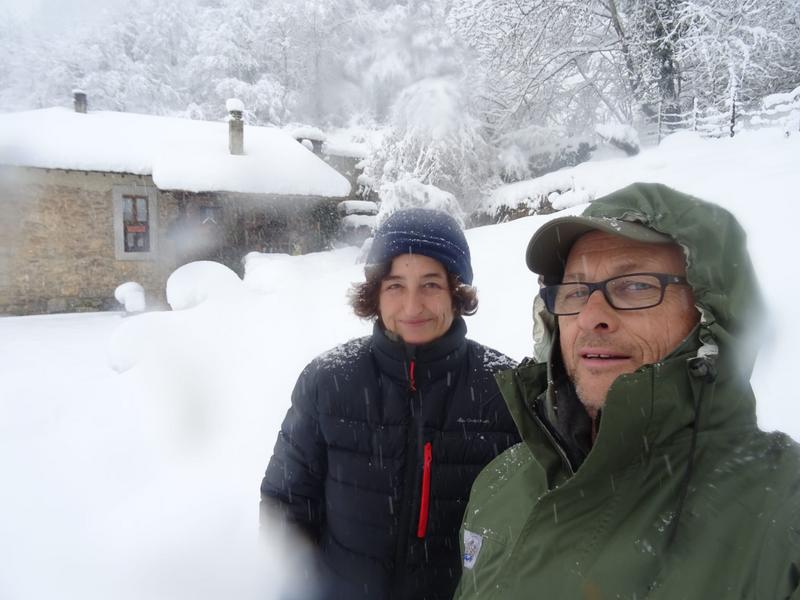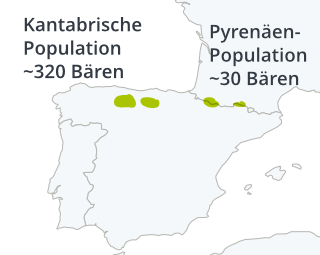By planting fruit trees, our Spanish partners from Fapas want to show how humans and bears can coexist peacefully. The campaign is intended to create new food sources for the bears and at the same time enable Fapas to establish a connection with the people in the villages.
“This bear must go!”
Broken branches, ravaged cherry trees, a pile of vomit in the meadow – there was no mistaking the fact that there was a powerful animal at work here. “This bear must go!” was the cry of the owner of this land in Villarino de Sil, a village in the northern Spanish province of León. It won’t be easy to placate him. However, Doriana Pando and Roberto Hartasánchez know that this is exactly what it is most important to do now. “The people in these local areas are anxious because it‘s only recently that bears have returned there and the government is stirring up feeling against these creatures. We want to send a positive message to counter that.” Doriana and Roberto are both determined and they already have a plan. Your donation will help put their plan into action.
Win the people’s trust
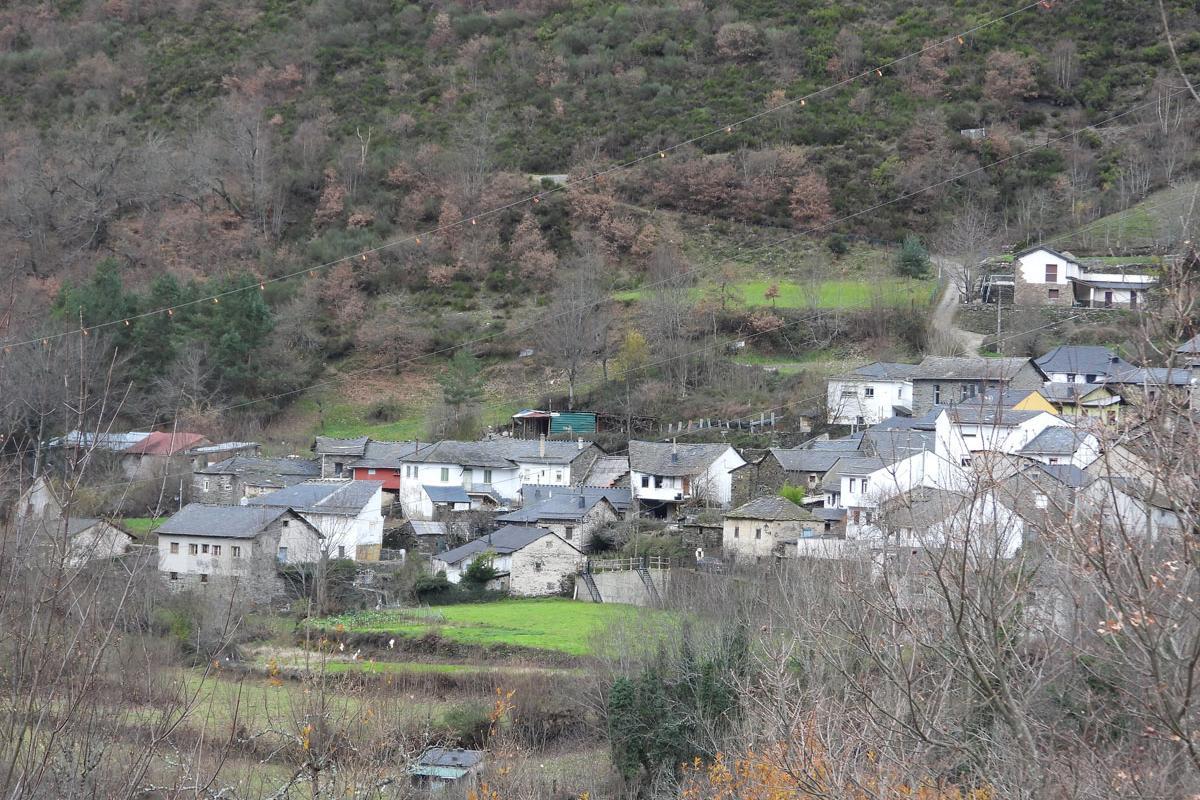
The village of Villarino de Sil lies right on the edge of the forest – literally an invitation to bears to help themselves to the apples and cherries in local gardens if the trees are not protected.
© Fapas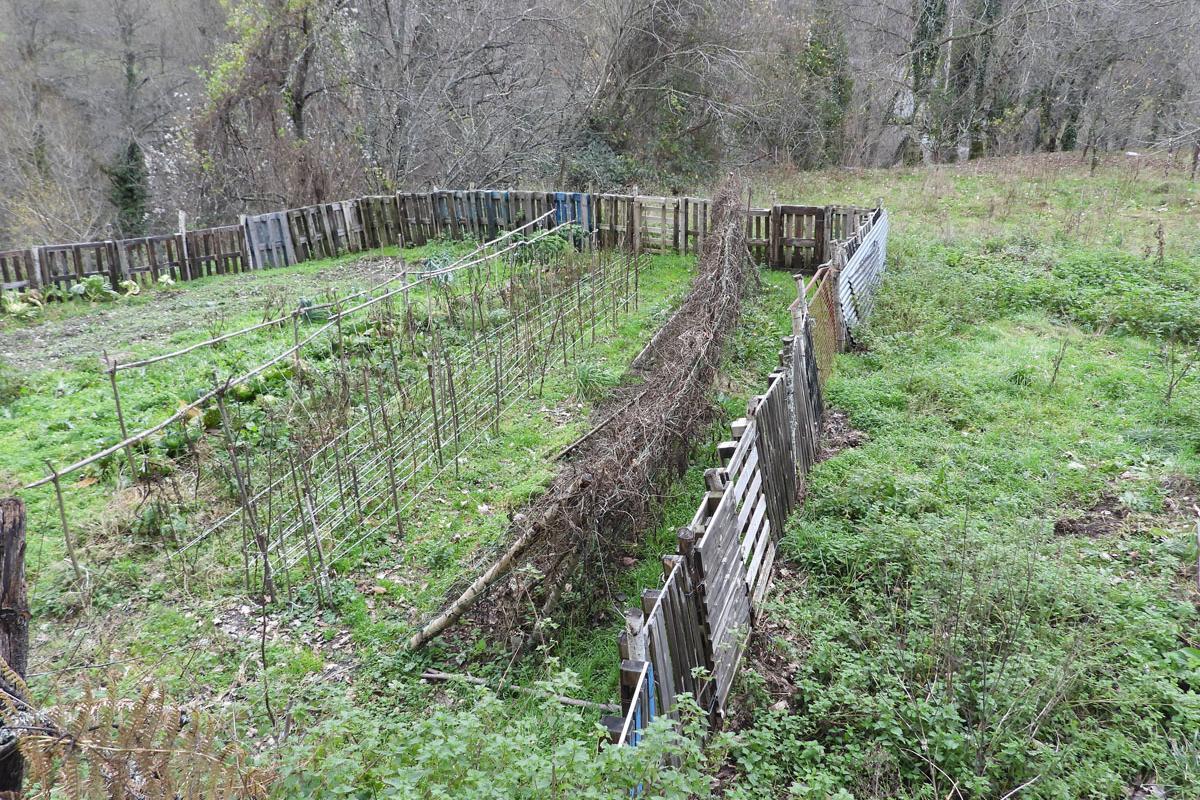
Even the lettuce plants drew Lechuguina‘s attention – giving rise to her name (Lechuga is Spanish for lettuce).
© Fapas“It is no surprise that bears are coming close to human settlements. In dry years in particular, when the oak trees do not produce any fruits, they cannot find enough to eat in the forests to the south of the Cantabrian mountains. Fruit trees in gardens attract them like magnets then. Especially as rural depopulation means most of the villages in the province of León have very few inhabitants now. Normally bears are peaceful but they do cause damage and that draws the wrath of the remaining village dwellers. Our Fruit Trees for Gourmets project aims to defuse the situation as quickly as possible and produce a lasting improvement,” says Doriana Pando, president of EuroNatur’s Spanish partner organisation Fapas.
End the witch hunt against bears
For Doriana and Roberto, the witch hunt that was stirred up against the young female bear Lechuguina is a pressing worry. This bear has already given birth to several young and she has a particularly important role to play in preserving the bear population. However, the government of the autonomous community of Castille-León is now considering having the bear captured and kept in a pen. “Spending the rest of her life imprisoned would be torture for Lechuguina and a bitter blow for bear conservation,“ says Roberto Hartasánchez. Now it’s a question of influencing the way bears are dealt with in future in the province of León.

About two years ago, Lechuguina, a female bear, was anaesthetised as part of a research project by the government, fitted with a GPS transmitter and released back into the wild. This makes her movements very easy to track.
© Junta de Castilla LeónFruit Trees for Gourmets
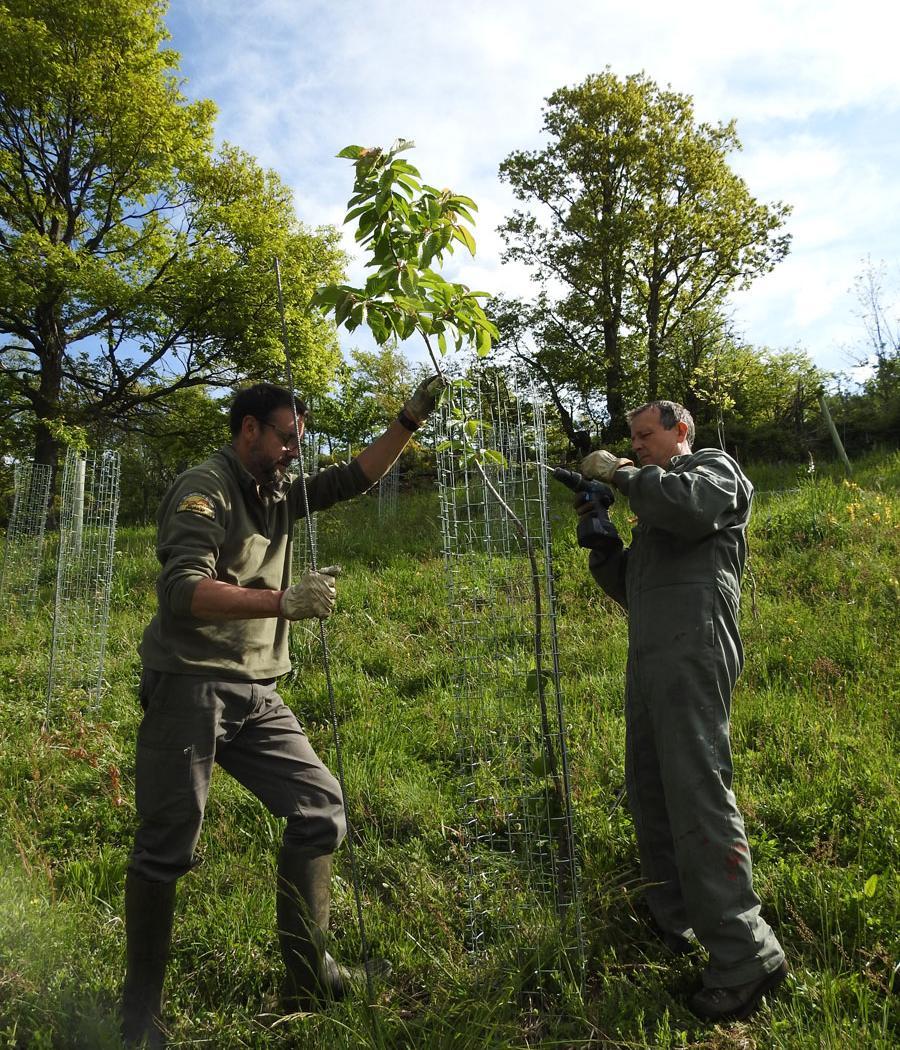
The trees from the Fapas nursery are planted with great care and protected from browsing.
© Fapas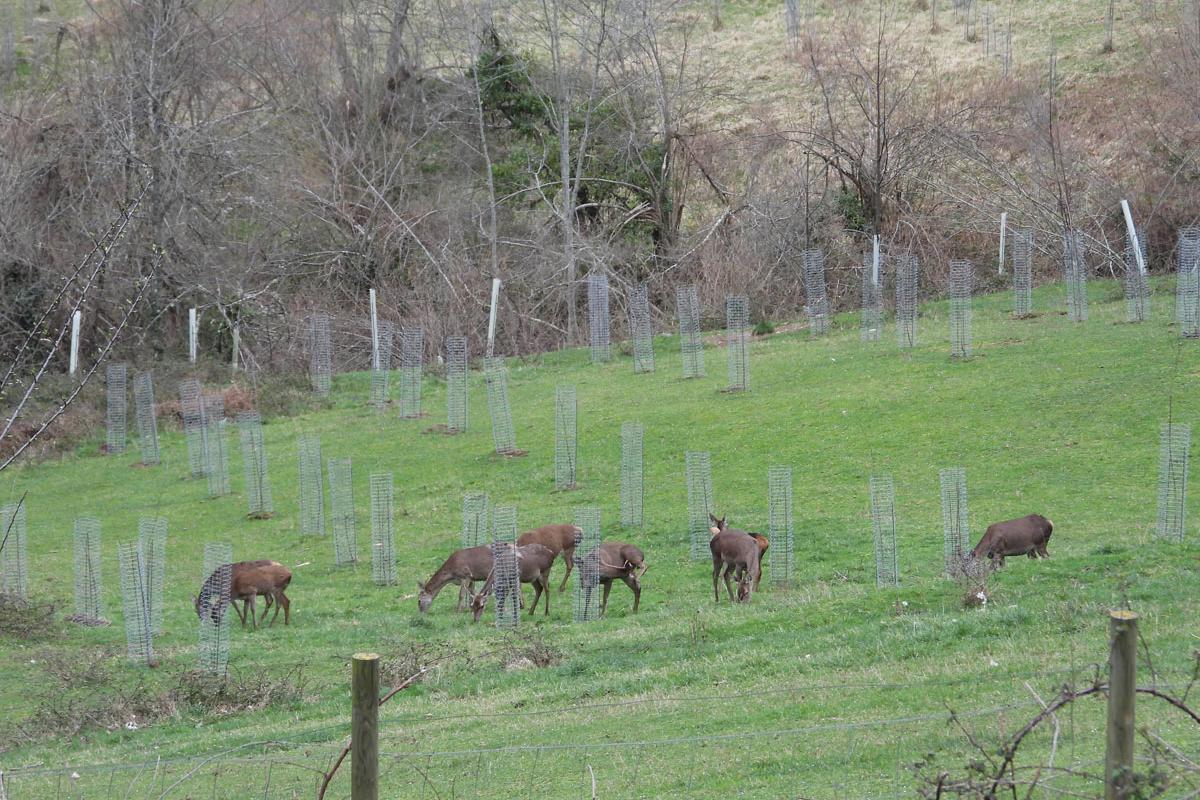
Fapas has developed metal grids of the "cactus" type that prevent fallow deer from eating the young fruit trees.
© FapasWith Fruit Trees for Gourmets, Doriana and Roberto want to show how mankind and bears can live successfully in peaceful coexistence. This campaign plans to create new sources of food for the bears and, at the same time, enable Fapas to build relationships with the people in the villages.
“We want to work with as many landowners as possible. We plan to spread the fruit trees across hundreds of small plots in the area, which are located at a safe distance from the villages and are no longer really able to be farmed,” explains Roberto. It’s important to us that each tree survives! We supply cherry, plum and apple trees from our Fapas tree nursery that are big enough and sufficiently sturdy. By planting them just at the edges of these pieces of land and using metal tree guards to protect them from being gnawed, the land can be used for grazing pasture at the same time. In addition to which, the landowners receive 10 Euros a tree from us, and they can make use of the fruit. In this way we want to get people to stop seeing the bears as a problem and instead connect them with something positive.”
Your donation will help!
Let’s work together to help support the peaceful coexistence of mankind and bear. Your donation for bears in Europe will help:
- turn our model project Fruit Trees for Gourmets into a reality in the province of León. To cover planting, tree guards, upkeep and our fee to landowners, we need 50 Euro per fruit tree. All together we plan to plant around 1000 trees.
- protect beehives from hungry bears in the Omaña region in the province of León. To do this, electric fences developed by Fapas will be supplied to beekeepers. For each site with 40-80 beehives we need 1,300 Euro.
- carry out a continuous population survey in the areas to the south of the Cantabrian mountains where bears have only recently settled. This will particularly enable mother bears with cubs to be better protected.
Whether it’s 10, 100, 1,000 Euros or more – your support is valuable! Please also consider setting up a regular donation, giving us the security to plan to campaign ceaselessly for the protection of Europe’s brown bears. Thank you!
-
Fapas – our strong Spanish partner



